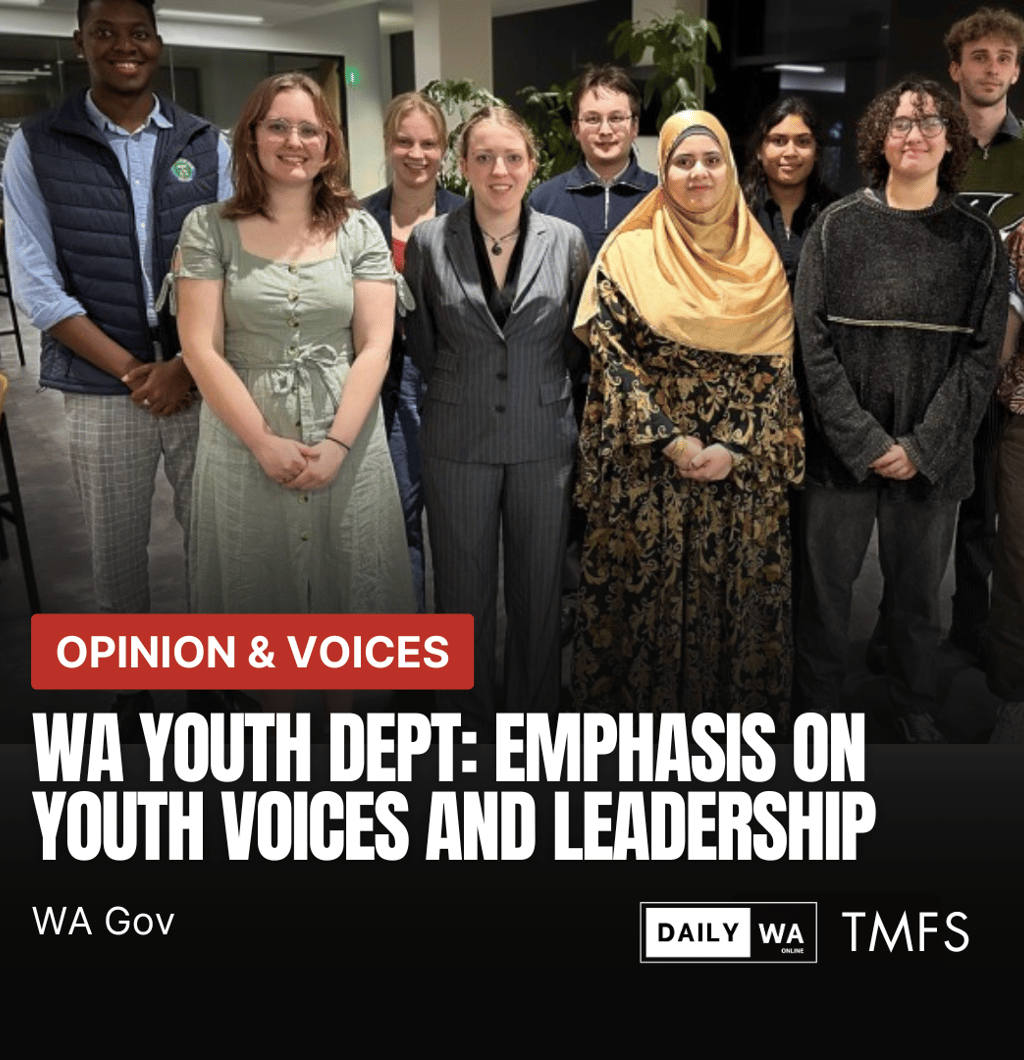Empowering WA’s Future: Why Youth Voices Must Lead Today’s Decisions
Western Australia’s Youth Department stresses the importance of amplifying youth voices and fostering leadership opportunities to shape policies that reflect the future they will inherit.
OPINION & VOICES


The future of Western Australia will not be defined solely by the choices made today but by the ability of its young people to carry those choices forward. Recognizing this truth, the WA Youth Department has placed a renewed emphasis on elevating youth voices and cultivating leadership among the next generation. This shift is not only timely but essential, as the challenges facing the state grow more complex and the need for fresh perspectives becomes more urgent.
Youth engagement in policy debates has often been underestimated or tokenized, treated as a symbolic gesture rather than a substantive contribution. Yet the evidence is overwhelming that young people bring a unique lens to issues ranging from climate change and education reform to digital innovation and social equity. Their lived experience in an increasingly interconnected world positions them as critical stakeholders in shaping strategies that will impact decades to come.
Globally, movements led by young leaders have demonstrated the power of their voices. From climate advocacy spearheaded by youth in Europe to grassroots social initiatives in Asia and Africa, younger generations have repeatedly shown that their ideas can mobilize communities and influence decision-makers. WA’s youth are no exception, with local campaigns already highlighting pressing concerns such as mental health support, sustainability, and inclusivity in education and employment.
Creating genuine opportunities for youth leadership means moving beyond consultation into co-design. It means ensuring that young people are not only heard but are active partners in crafting solutions. Programs that integrate youth representatives into advisory panels, provide access to leadership training, and foster mentorship across industries can ensure that their contributions are both visible and impactful.
The benefits of this approach extend beyond youth themselves. Policies enriched by diverse perspectives are more robust, more innovative, and more widely accepted. Involving young people also builds civic responsibility, creating a generation that feels invested in and accountable for the progress of their communities. In an era where disengagement and mistrust of institutions are rising, nurturing youth leadership is a powerful antidote.
For Western Australia, the stakes could not be higher. The challenges of balancing economic growth with environmental responsibility, addressing inequality, and navigating global technological disruption will demand new ways of thinking. These are precisely the areas where young leaders can make the difference, bringing urgency, creativity, and resilience to the conversation.
The WA Youth Department’s emphasis on youth voices is not a symbolic gesture but a call to action for institutions across the state. Schools, businesses, non-profits, and government agencies must create platforms that allow young people to shape decisions meaningfully. Empowerment cannot remain confined to policy papers; it must be embedded in practice.
Western Australia’s future depends on the capacity of its youth to lead, innovate, and adapt. By embracing their voices today, the state can secure a more inclusive, forward-looking tomorrow. The task ahead is to ensure that opportunities are not limited to a privileged few but extend to young people from all backgrounds, so that leadership truly reflects the diversity of the community.
The message is clear: when youth voices lead, societies thrive. WA must continue to prioritize youth leadership not as an afterthought but as the foundation of sustainable progress.
All rights belong to their respective owners. This article contains references and insights based on publicly available information and sources. We do not claim ownership over any third-party content mentioned.


